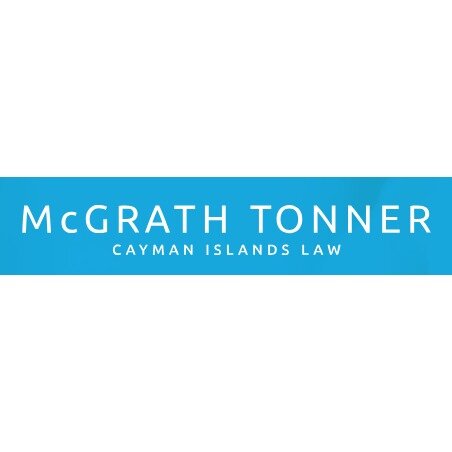Best Employment Benefits & Executive Compensation Lawyers in Cayman Islands
Share your needs with us, get contacted by law firms.
Free. Takes 2 min.
Or refine your search by selecting a city:
List of the best lawyers in Cayman Islands
About Employment Benefits & Executive Compensation Law in Cayman Islands
The Employment Benefits & Executive Compensation field in the Cayman Islands is a crucial part of the employment law landscape, governing the various forms of compensation and benefits that employers provide to employees. This area of law encompasses salary, bonuses, stock options, retirement plans, health benefits, and other perks that executives and employees receive as part of their employment package. The Cayman Islands, as a leading financial center, have specific legal frameworks and regulations to ensure transparency, compliance, and fairness in these arrangements.
Why You May Need a Lawyer
You may require legal assistance in Employment Benefits & Executive Compensation in several situations, including:
- Negotiating your employment contract to ensure a fair compensation package.
- Understanding complex benefit plans such as stock options, deferred compensation, or retirement benefits.
- Dealing with employment disputes related to benefits, such as unpaid bonuses or discrepancies in pension schemes.
- Navigating regulatory compliance for businesses offering executive compensation packages.
- Ensuring that employee benefits plans conform to local regulations and tax laws.
Engaging a lawyer experienced in this field can help protect your rights and ensure that you understand the legal implications of your employment benefits.
Local Laws Overview
The Cayman Islands have a distinct set of laws and regulations governing Employment Benefits & Executive Compensation. Key aspects include:
- Employment Law: Governs the overall framework of employer-employee relationships, including compensation terms.
- Pension Plans Act: Mandates private sector employers to have pension plans for their employees.
- Financial Regulations: Includes laws related to taxation of income and benefits, affecting how executive compensation packages are structured.
- Contract Law: Essential for drafting and reviewing the terms of employment contracts, focusing on fairness and legal compliance.
Understanding these local laws is crucial for both employers and employees to ensure compliance and protect their interests.
Frequently Asked Questions
What are my rights regarding employment benefits in the Cayman Islands?
Employee rights to benefits are largely dictated by the terms of the employment contract and any applicable local laws, such as the Pension Plans Act for retirement benefits.
Do I need a lawyer to negotiate my compensation package?
While not legally required, having a lawyer can help ensure that your compensation package is fair and that all benefits are clearly outlined and enforceable.
How are executive compensation packages taxed in the Cayman Islands?
The Cayman Islands have no direct taxes, such as income tax, which impacts how cash and stock-based incentives are structured and offered.
Can I sue my employer for not honoring my employment benefits agreement?
Yes, if an employer violates the terms of a contract regarding benefits or compensation, legal action may be pursued.
What is the legal requirement for employer-provided pension plans?
Employers in the private sector are required to enroll their employees in a pension plan as per the local Pension Plans Act.
Are bonuses considered a legal right or at the discretion of the employer?
This depends on the terms outlined in your employment contract. If bonuses are conditional or discretionary, this will be specified.
Can an employer change the terms of a benefits package unilaterally?
Typically, changes to the terms of employment and benefits require consent from both parties, adhering to the conditions in the contract.
What happens to my benefits if I change jobs?
This will depend on the specific provisions of each benefit plan and the terms of your employment contract regarding severance or resignation.
How can I verify that my employer's compensation practices are legal?
Consulting with a lawyer or a financial expert can ensure that your employer's practices align with local laws and regulations.
Is there legal protection for whistleblowers related to compensation disputes?
The Cayman Islands have laws that generally protect whistleblowers, but specific legal advice should be sought to understand the scope of protection in employment matters.
Additional Resources
For further guidance and support, consider consulting the following resources:
- The Department of Labour and Pensions: Provides information on employment rights and pension plans.
- Cayman Islands Government’s Labour Portal: Offers resources related to employment laws and regulations.
- The Cayman Islands Law Society: A professional body for legal practitioners, offering resources and legal assistance options.
Next Steps
If you require legal assistance in Employment Benefits & Executive Compensation, consider the following steps:
- Identify the specific legal issues you are facing related to benefits or compensation.
- Gather relevant documents, such as employment contracts, benefit plan details, and correspondence with your employer.
- Consult a lawyer who specializes in employment law in the Cayman Islands. They can provide personalized advice and representation.
- Consider seeking a preliminary consultation to understand the potential costs and the scope of legal services offered.
Taking these proactive steps can help ensure that your rights and interests are effectively represented and safeguarded.
Lawzana helps you find the best lawyers and law firms in Cayman Islands through a curated and pre-screened list of qualified legal professionals. Our platform offers rankings and detailed profiles of attorneys and law firms, allowing you to compare based on practice areas, including Employment Benefits & Executive Compensation, experience, and client feedback.
Each profile includes a description of the firm's areas of practice, client reviews, team members and partners, year of establishment, spoken languages, office locations, contact information, social media presence, and any published articles or resources. Most firms on our platform speak English and are experienced in both local and international legal matters.
Get a quote from top-rated law firms in Cayman Islands — quickly, securely, and without unnecessary hassle.
Disclaimer:
The information provided on this page is for general informational purposes only and does not constitute legal advice. While we strive to ensure the accuracy and relevance of the content, legal information may change over time, and interpretations of the law can vary. You should always consult with a qualified legal professional for advice specific to your situation.
We disclaim all liability for actions taken or not taken based on the content of this page. If you believe any information is incorrect or outdated, please contact us, and we will review and update it where appropriate.
Browse employment benefits & executive compensation law firms by city in Cayman Islands
Refine your search by selecting a city.
















